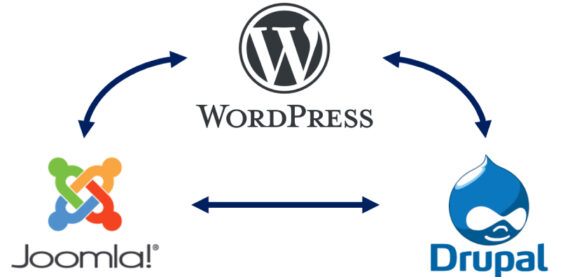Backlinks are also called inbound links because they represent another website’s traffic coming to your own site. The quality and quantity of your backlinks can assist you to
What are backlinks?
A backlink is a link on someone else’s website that sends the reviewer to your site. Think of it as an expert testimonial. If a blogger or someone else from your industry is referring people to your page, they must think it’s attractive great.
Google rates pages depend on their relevance and link popularity, as well as on their expertise, authoritativeness, and trustworthiness, or E-A-T score. For Google to rank a page highly, it wants to know that other people think its content is valuable, and it does it by – among other things, – taking into consideration how many are linking to your website.
If many of the people are sending their readers to you, then you’re what organic search experts call “worthy of amplification.” That’s why it’s fundamental to examine backlinks and to organize a process to attract them from high authority sites, which can be done via content marketing campaigns, among others, to upgrade your site’s presence in search results.
It’s also important to note that there are different types of backlinks and that not all backlinks pass the similar value. You can utilize certain attributes in the links you place towards other sites to qualify their value: rel=” sponsored” to mark links that are advertisements, rel=”UGC” to mark links within comments and forums, and rel=”nofollow” when other values don’t apply and you don’t want Google to associate you with the website you’re linking to.
How to get quality backlinks
Once your site is ready for backlinks, it’ll be tempting to get as many as you can. But the quality of your backlinks matters extra than the quantity. In fact, the wrong links will really hurt your search engine results instead of helping your organic traffic. Here are the criteria that determine whether a backlink is good for your link building strategy:
- Relevance
Some backlink opportunities will be ideal for you. These are the ones that come from pages straight related to your product or service.
For example, if your company manufactures maternity clothes, you’d skip on a backlink from a product review site that targets expectant moms.
But, a word of warning—doesn’t be a backlink snob. You won’t find much perfect fits, so stay open to backlinks that are adjacent to what you do. Your maternity clothing company will do just great with a backlink from a parenting magazine or even a fashion blog.
A word on geo-targeting
If you have a pure e-commerce brand, geo-targeting won’t matter much in your search for backlinks. But if you have a brick-and-mortar location or you offer in-person services, your most relevant backlinks will be those that are both straight related to your business and in your area. The second good are those that are either subject-relevant or geographically targeted. Anything below that is links that are only moderately relevant.
2. Authority
Google uses algorithms to determine a website’s authoritativeness. The company used to publish the details of the algorithm—known as PageRank—but it stopped doing that little year ago. Now the only way to figure out a page’s official ranking is to go through the algorithm yourself, but that requires knowing your best way around things like “eigenvector” and “normalized link matrix.” Yikes.
It’s much simple—and less brain-melting—to use a third-party tool like Ahrefs or Open Site Explorer. And since none of the tools available today are ideally aligned with Google, so it’s best to use more than one.
3. Link quality
Most of the time, you can trust a site with high scores on third-party evaluation sites. But there are also few malicious sites that know how to game the system. Sites can pretend to be authoritative by falsifying reviews, testimonials, and ratings, but the overall quality of the domain will inform you the truth.
A site can fake authority, but it can’t fraud organic keyword ranking and organic search. If you go into a third-party tool like Ahrefs and analyze the domain that your potential backlink comes from, you can tell if it’s ranking well for various keywords and driving traffic. Manipulated sites won’t top that list.
4. Editorial standards
You’ll get more street cred with a backlink from a site that’s selective about the backlinks it offers. If your backlink comes from a site that hands links out like candy, no one will be overcome. Seek out sites that have verified editorial standards. It’ll take extended and you might not get accepted right away, but it’s worth it to get that nod of approval.
5. Outbound link quality
Whenever you have the opportunity to pick up a backlink from a site, visit it and check out what other outbound links they have. Are they organically placed, or did someone plainly force them in there? Does a thorough quality check? If the site looks like it accepts relevant and authoritative links, and it places them appropriately, you can feel best about your link being there as well.
There’s also a link designing tactic called “broken link building” that you can use to find those links that authoritative sites are including to broken pages featuring content that you also provide, pointing out this error to site owners and showing how they can fix this by linking to your working piece of content instead. For this, you can employ a link checker offered by SEO tools like Ahrefs or SEMrush.
6. Indexing status
Don’t bother getting backlinks from any site that isn’t indexed. If a site isn’t in the index, it will no way show up on an organic search.
Sites earn indexed when Google’s spider crawler visits and explores them, following links to find out what’s there. Each page it discovers will have either an index or a no-index Meta tag, and the spider folder that page in the index or not as instructed.
rank higher in search engines such as Google and Bing. This is because your backlinks are examining an indicator of how popular your website is with users. Implementing, managing, and analyzing the performance of backlinks is the main aspect of search engine optimization (SEO) and SEO strategies.
Backlinks are a cornerstone of best search engine optimization (SEO) and are considered to be critical as ranking factors. We will show you how to analyze your backlink profile, fix problems on your website, get quality backlinks, avoid bad ones, discover relevant backlinks to your website, and strategize properly.









































